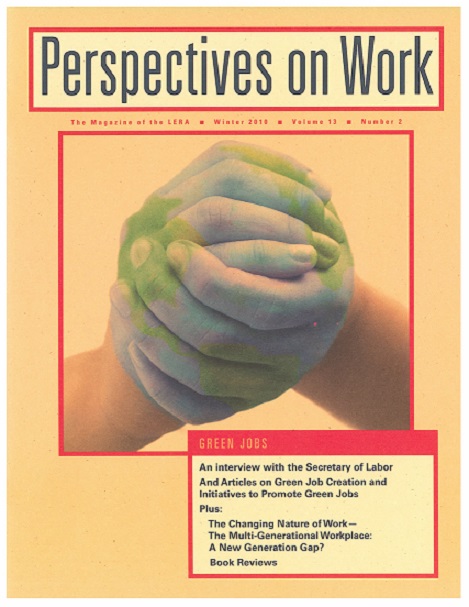The Political Economy of Work by David A. Spencer
Abstract
The Bible tells us that God’s punishment of Adam and Eve for eating the forbidden fruit was to expel them from the Garden of Eden and condemn them and all succeeding generations to a life of irksome toil in pursuit of our daily bread. David Spencer, an economics professor at the University of Leeds, argues in his new book, The Political Economy of Work, that orthodox (neoclassical/mainstream) economics has pretty much built its theory of labor supply around the same view of work. That is, standard “work is irksome” theory portrays income and leisure as “goods” that rational people want more of (i.e., the means to purchase our daily bread and the time to enjoy eating it and other activities), while at the same time, work is portrayed as a “bad,” “pain,” or “disutility” and thus an activity that rational people seek to minimize if not altogether avoid.The orthodox view, which may at times ring true, suggests that workers must be bribed with money (a wage or salary), supervised lest they rest on their shovels (shirk), and coerced (incented) to work hard and follow orders by the threat of being fired. The model also posits that (1) other things being equal, give people more income, and they work less, (2) people substitute from leisure toward work if the marginal return to work is increased, and (3) an increase in the wage per hour may lead a person to work more or less depending on how much the extra money is valued versus the dislike of forgone leisure time. This dominant theory is made scientific with the help of wellknown diagrams and equations. Spencer, however, wants to draw our attention to an alternative perspective that is—at least for economics—distinctly heterodox and at places tinged with radical political and social overtones. The following passage gives the flavor of this alternative “work as a good” perspective:Downloads
Issue
Section
Articles

